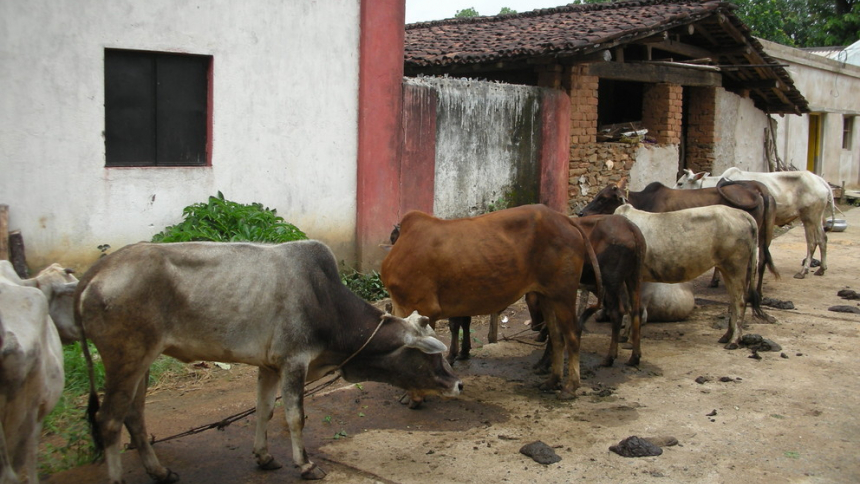The malaria parasite, Plasmodium falciparum, is spread via mosquito vectors, Anopholes spp., and vector species have differing host preferences for humans or livestock. Recent research in Odisha, India has shed light on host preference variability displayed by Anopheles. Odisha is a target for control efforts and research because almost half of all malaria cases and over a third of all malaria-related deaths in India occur here.
Penn State Postdoctoral researcher Jessica Waite and fellow scientists Sunita Swain, Penelope Lynch, S. K. Sharma, Mohammed Asrarul Haque, Jacqui Montgomery, and Matthew B. Thomas studied two vector species (An. culicifacies and An. uviatilis) in the Sundergarh district, Odisha, India in 2013-2014. They found that both species feed on cattle (33-35% bovine only blood meals), rest in cattle sheds, and opportunistically feed on humans (40-45% mixed blood meals). The majority of mosquitoes were found in cattle sheds yet most did not exclusively feed on humans or cattle, suggesting a shift in vector behavior. Further, mosquitoes feeding exclusively on humans were found resting in cattle sheds and mosquitoes feeding exclusively on cattle were found in homes.
In order to understand feeding and transmission dynamics, Waite et al. built a model to estimate the basic reproductive number (R0) of Plasmodium falciparum. They found that R0 decreased with increasing zoophily (preference for animals) because cattle blood meals do not help spread malaria. However, because conventional control measures do not account for zoophily, transmission may increase in areas where cattle are a food source and area of protection from insecticides (i.e. R0 > 1 using anthropohilic control only). Luckily, even a small amount of vector control during the zoophilic cycle will substantially decrease R0.
Overall, their models concluded diminishing returns with an increase in indoor residual spray and insecticide-treated bed nets because cattle help keep vectors alive, whereas spraying insecticide in cattle sheds would greatly decrease vector survival and thus malaria transmission. These findings are crucial to eliminating malaria in the Asia-Pacific region by WHO’s 2030 goal.
Synopsis by Ellen Brandell
Publication Details
Jessica L. Waite, Sunita Swain, Penelope A. Lynch, S. K. Sharma, Mohammed Asrarul Haque, Jacqui Montgomery, Matthew B. Thomas
Increasing the potential for malaria elimination by targeting zoophilic vectors
Journal: Nature - Scientific Reports
DOI Reference




